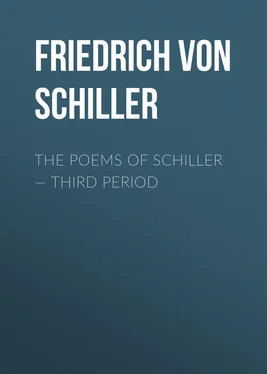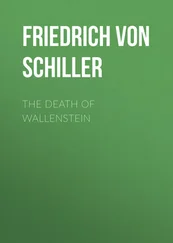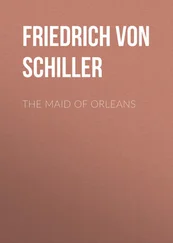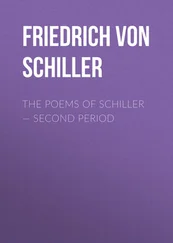Friedrich Schiller - The Poems of Schiller — Third period
Здесь есть возможность читать онлайн «Friedrich Schiller - The Poems of Schiller — Third period» — ознакомительный отрывок электронной книги совершенно бесплатно, а после прочтения отрывка купить полную версию. В некоторых случаях можно слушать аудио, скачать через торрент в формате fb2 и присутствует краткое содержание. Жанр: literature_18, Поэзия, foreign_antique, foreign_prose, foreign_poetry, на английском языке. Описание произведения, (предисловие) а так же отзывы посетителей доступны на портале библиотеки ЛибКат.
- Название:The Poems of Schiller — Third period
- Автор:
- Жанр:
- Год:неизвестен
- ISBN:нет данных
- Рейтинг книги:3 / 5. Голосов: 1
-
Избранное:Добавить в избранное
- Отзывы:
-
Ваша оценка:
- 60
- 1
- 2
- 3
- 4
- 5
The Poems of Schiller — Third period: краткое содержание, описание и аннотация
Предлагаем к чтению аннотацию, описание, краткое содержание или предисловие (зависит от того, что написал сам автор книги «The Poems of Schiller — Third period»). Если вы не нашли необходимую информацию о книге — напишите в комментариях, мы постараемся отыскать её.
The Poems of Schiller — Third period — читать онлайн ознакомительный отрывок
Ниже представлен текст книги, разбитый по страницам. Система сохранения места последней прочитанной страницы, позволяет с удобством читать онлайн бесплатно книгу «The Poems of Schiller — Third period», без необходимости каждый раз заново искать на чём Вы остановились. Поставьте закладку, и сможете в любой момент перейти на страницу, на которой закончили чтение.
Интервал:
Закладка:
Can the sweet hopes love once cherished
Emma, can they transient prove?
What has passed away and perished —
Emma, say, can that be love?
That bright flame of heavenly birth —
Can it die like things of earth?
THE FAVOR OF THE MOMENT
Once more, then, we meet
In the circles of yore;
Let our song be as sweet
In its wreaths as before,
Who claims the first place
In the tribute of song?
The God to whose grace
All our pleasures belong.
Though Ceres may spread
All her gifts on the shrine,
Though the glass may be red
With the blush of the vine,
What boots — if the while
Fall no spark on the hearth;
If the heart do not smile
With the instinct of mirth? —
From the clouds, from God's breast
Must our happiness fall,
'Mid the blessed, most blest
Is the moment of all!
Since creation began
All that mortals have wrought,
All that's godlike in man
Comes — the flash of a thought!
For ages the stone
In the quarry may lurk,
An instant alone
Can suffice to the work;
An impulse give birth
To the child of the soul,
A glance stamp the worth
And the fame of the whole. 4 4 The idea diffused by the translator through this and the preceding stanza is more forcibly condensed by Schiller in four lines.
On the arch that she buildeth
From sunbeams on high,
As Iris just gildeth,
And fleets from the sky,
So shineth, so gloometh
Each gift that is ours;
The lightning illumeth —
The darkness devours! 5 5 "And ere a man hath power to say, 'behold,' The jaws of Darkness do devour it up, So quick bright things come to confusion." — SHAKESPEARE. The three following ballads, in which Switzerland is the scene, betray their origin in Schiller's studies for the drama of William Tell.
THE LAY OF THE MOUNTAIN
[The scenery of Gotthardt is here personified.]
To the solemn abyss leads the terrible path,
The life and death winding dizzy between;
In thy desolate way, grim with menace and wrath,
To daunt thee the spectres of giants are seen;
That thou wake not the wild one 6 6 The avalanche — the equivoque of the original, turning on the Swiss word Lawine, it is impossible to render intelligible to the English reader. The giants in the preceding line are the rocks that overhang the pass which winds now to the right, now to the left, of a roaring stream.
, all silently tread —
Let thy lip breathe no breath in the pathway of dread!
High over the marge of the horrible deep
Hangs and hovers a bridge with its phantom-like span, 7 7 The Devil's Bridge. The Land of Delight (called in Tell "a serene valley of joy") to which the dreary portal (in Tell the black rock gate) leads, is the Urse Vale. The four rivers, in the next stanza, are the Reus, the Rhine, the Tessin, and the Rhone.
Not by man was it built, o'er the vastness to sweep;
Such thought never came to the daring of man!
The stream roars beneath — late and early it raves —
But the bridge, which it threatens, is safe from the waves.
Black-yawning a portal, thy soul to affright,
Like the gate to the kingdom, the fiend for the king —
Yet beyond it there smiles but a land of delight,
Where the autumn in marriage is met with the spring.
From a lot which the care and the trouble assail,
Could I fly to the bliss of that balm-breathing vale!
Through that field, from a fount ever hidden their birth,
Four rivers in tumult rush roaringly forth;
They fly to the fourfold divisions of earth —
The sunrise, the sunset, the south, and the north.
And, true to the mystical mother that bore,
Forth they rush to their goal, and are lost evermore.
High over the races of men in the blue
Of the ether, the mount in twin summits is riven;
There, veiled in the gold-woven webs of the dew,
Moves the dance of the clouds — the pale daughters of heaven!
There, in solitude, circles their mystical maze,
Where no witness can hearken, no earthborn surveys.
August on a throne which no ages can move,
Sits a queen, in her beauty serene and sublime, 8 8 The everlasting glacier. See William Tell, act v, scene 2.
The diadem blazing with diamonds above
The glory of brows, never darkened by time,
His arrows of light on that form shoots the sun —
And he gilds them with all, but he warms them with none!
THE ALPINE HUNTER
Wilt thou not the lambkins guard?
Oh, how soft and meek they look,
Feeding on the grassy sward,
Sporting round the silvery brook!
"Mother, mother, let me go
On yon heights to chase the roe!"
Wilt thou not the flock compel
With the horn's inspiring notes?
Sweet the echo of yon bell,
As across the wood it floats!
"Mother, mother, let me go
On yon heights to hunt the roe!"
Wilt thou not the flow'rets bind,
Smiling gently in their bed?
For no garden thou wilt find
On yon heights so wild and dread.
"Leave the flow'rets, — let them blow!
Mother, mother, let me go!"
And the youth then sought the chase,
Onward pressed with headlong speed
To the mountain's gloomiest place, —
Naught his progress could impede;
And before him, like the wind,
Swiftly flies the trembling hind!
Up the naked precipice
Clambers she, with footsteps light,
O'er the chasm's dark abyss
Leaps with spring of daring might;
But behind, unweariedly,
With his death-bow follows he.
Now upon the rugged top
Stands she, — on the loftiest height,
Where the cliffs abruptly stop,
And the path is lost to sight.
There she views the steeps below, —
Close behind, her mortal foe.
She, with silent, woeful gaze,
Seeks the cruel boy to move;
But, alas! in vain she prays —
To the string he fits the groove.
When from out the clefts, behold!
Steps the Mountain Genius old.
With his hand the Deity
Shields the beast that trembling sighs;
"Must thou, even up to me,
Death and anguish send?" he cries, —
Earth has room for all to dwell, —
"Why pursue my loved gazelle?"
DITHYRAMB. 9 9 This has been paraphrased by Coleridge.
Believe me, together
The bright gods come ever,
Still as of old;
Scarce see I Bacchus, the giver of joy,
Than comes up fair Eros, the laugh-loving boy,
And Phoebus, the stately, behold!
They come near and nearer,
The heavenly ones all —
The gods with their presence
Fill earth as their hall!
Say, how shall I welcome,
Human and earthborn,
Sons of the sky?
Pour out to me — pour the full life that ye live!
What to ye, O ye gods! can the mortal one give?
The joys can dwell only
In Jupiter's palace —
Brimmed bright with your nectar,
Oh, reach me the chalice!
"Hebe, the chalice
Fill full to the brim!
Steep his eyes — steep his eyes in the bath of the dew,
Let him dream, while the Styx is concealed from his view,
That the life of the gods is for him!"
It murmurs, it sparkles,
The fount of delight;
The bosom grows tranquil —
The eye becomes bright.
Интервал:
Закладка:
Похожие книги на «The Poems of Schiller — Third period»
Представляем Вашему вниманию похожие книги на «The Poems of Schiller — Third period» списком для выбора. Мы отобрали схожую по названию и смыслу литературу в надежде предоставить читателям больше вариантов отыскать новые, интересные, ещё непрочитанные произведения.
Обсуждение, отзывы о книге «The Poems of Schiller — Third period» и просто собственные мнения читателей. Оставьте ваши комментарии, напишите, что Вы думаете о произведении, его смысле или главных героях. Укажите что конкретно понравилось, а что нет, и почему Вы так считаете.











